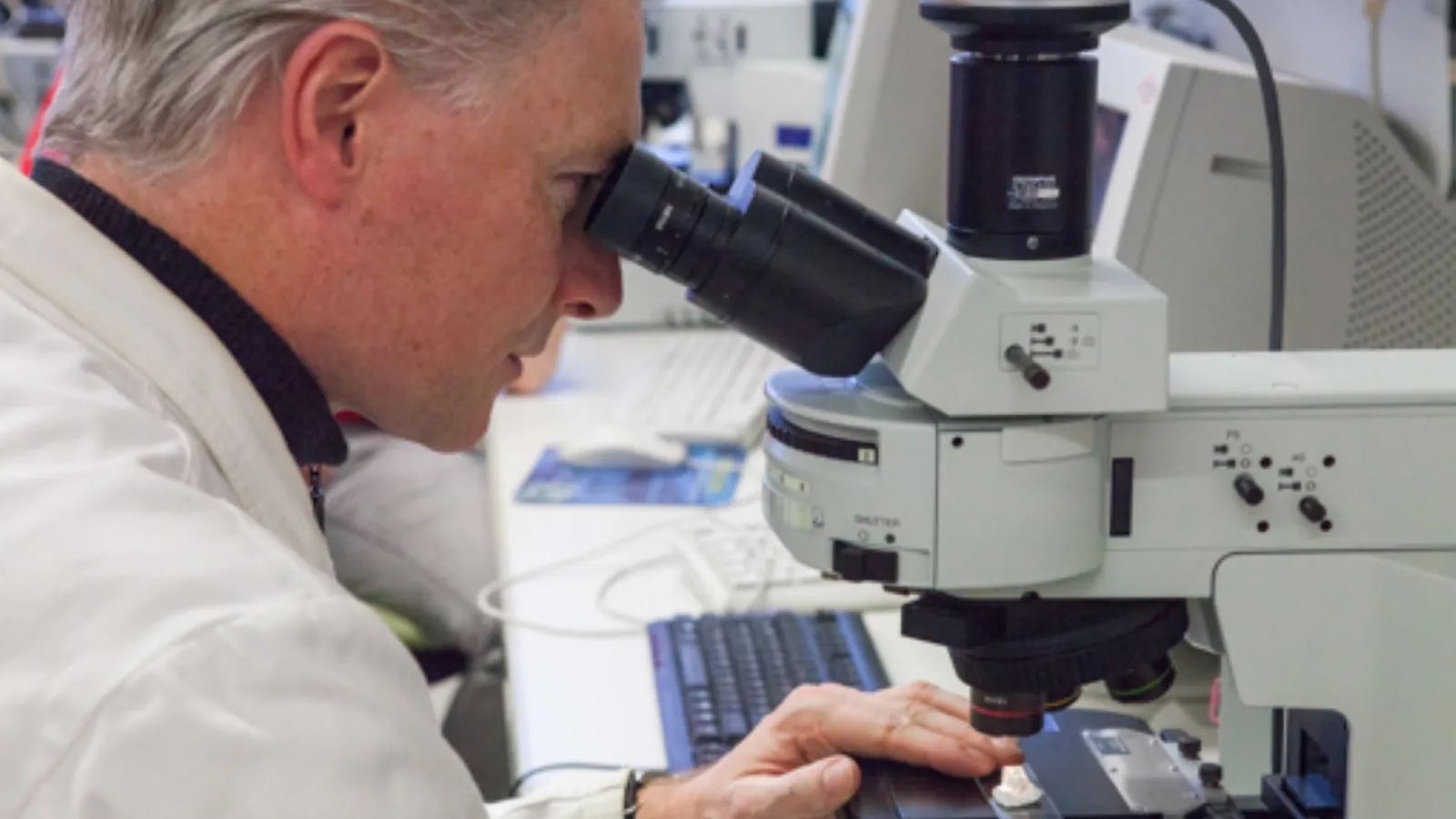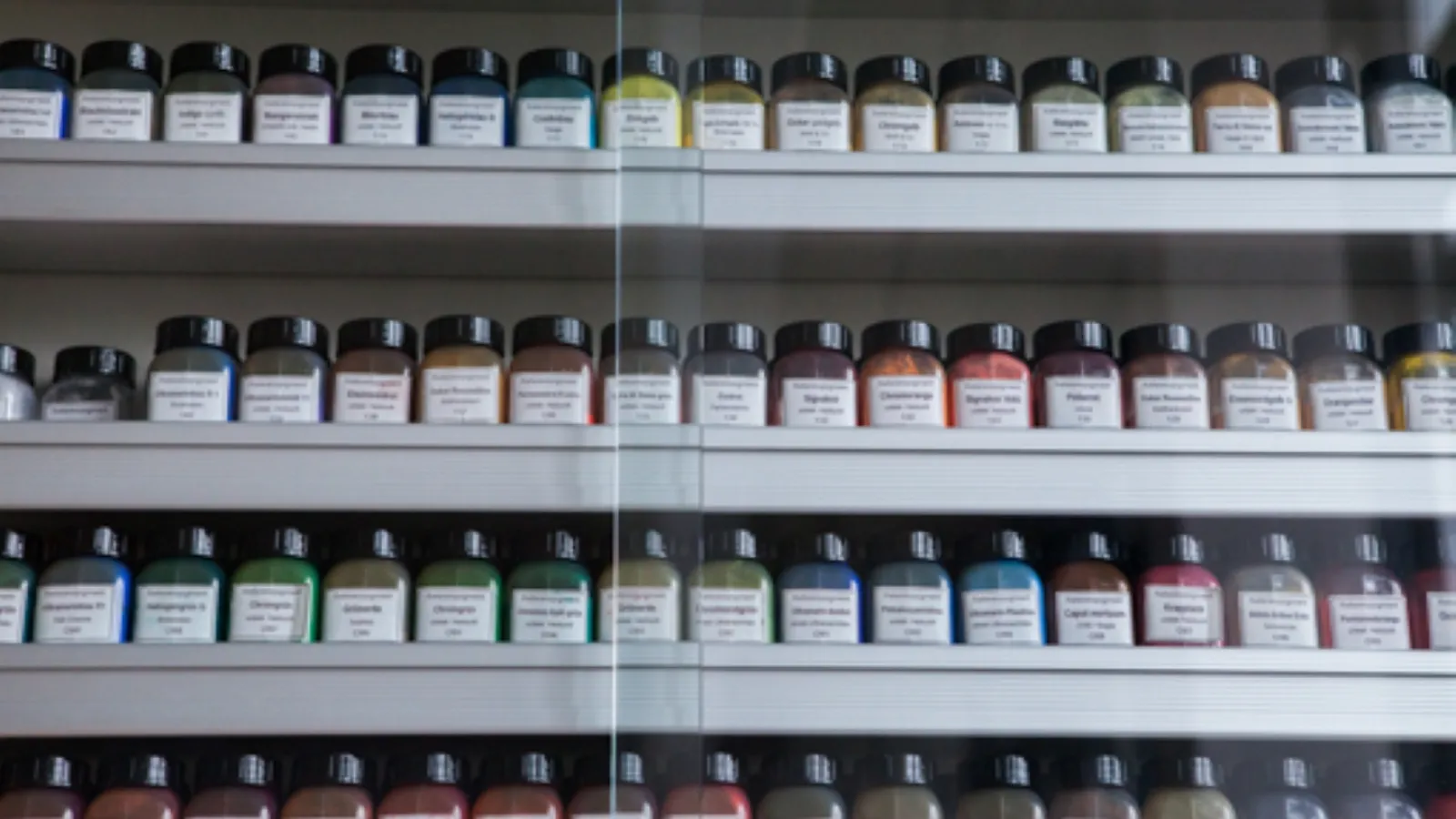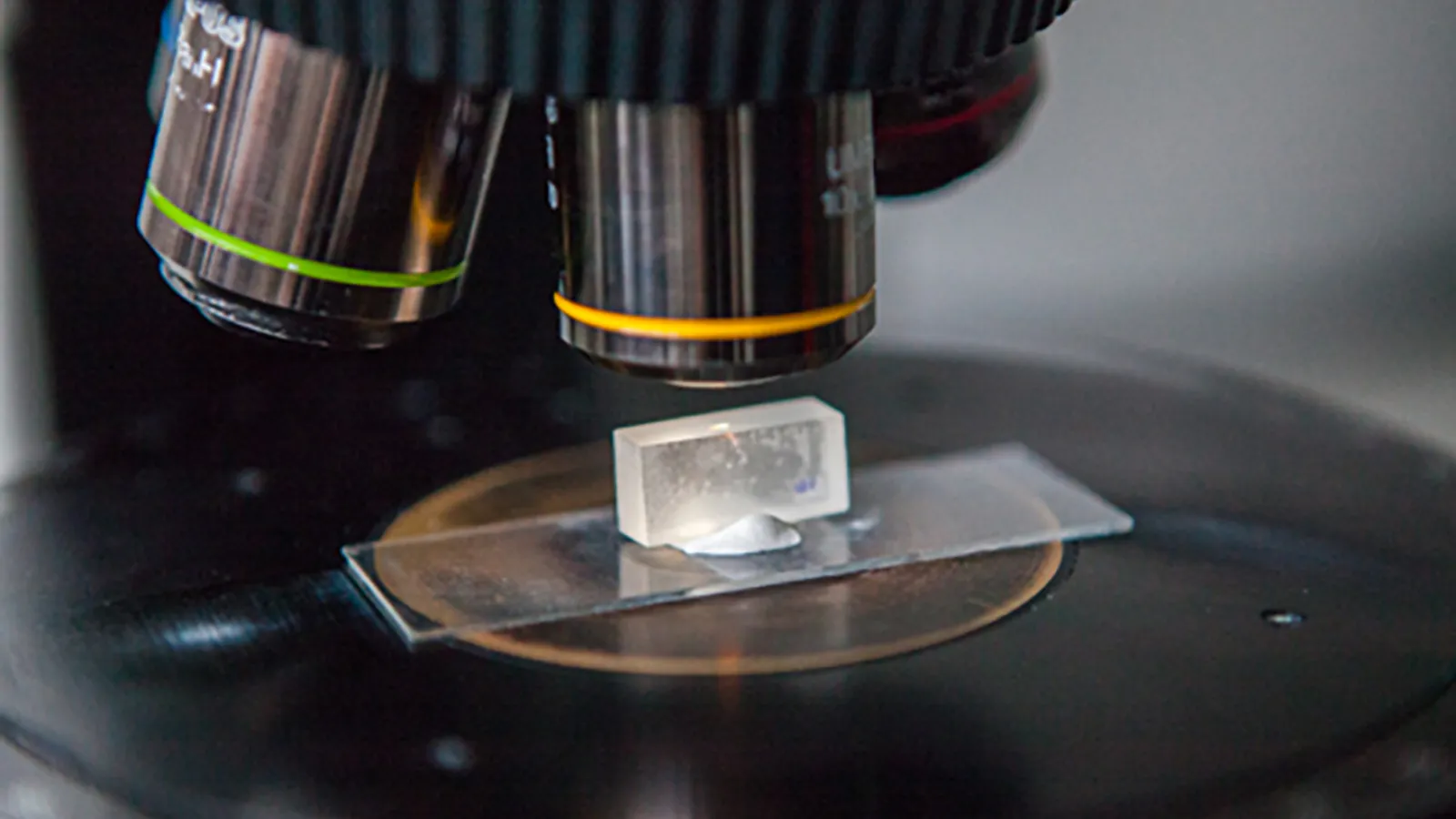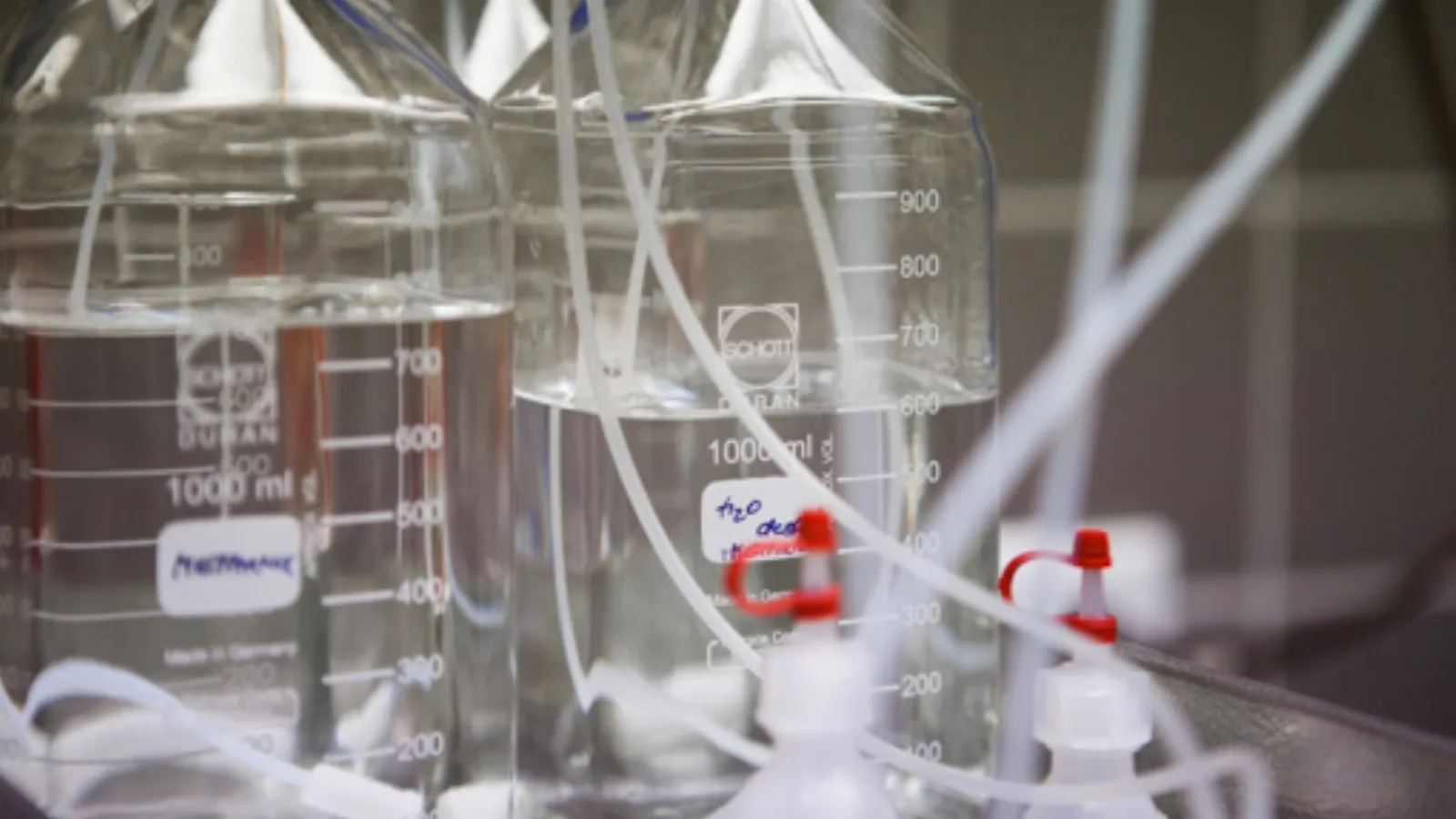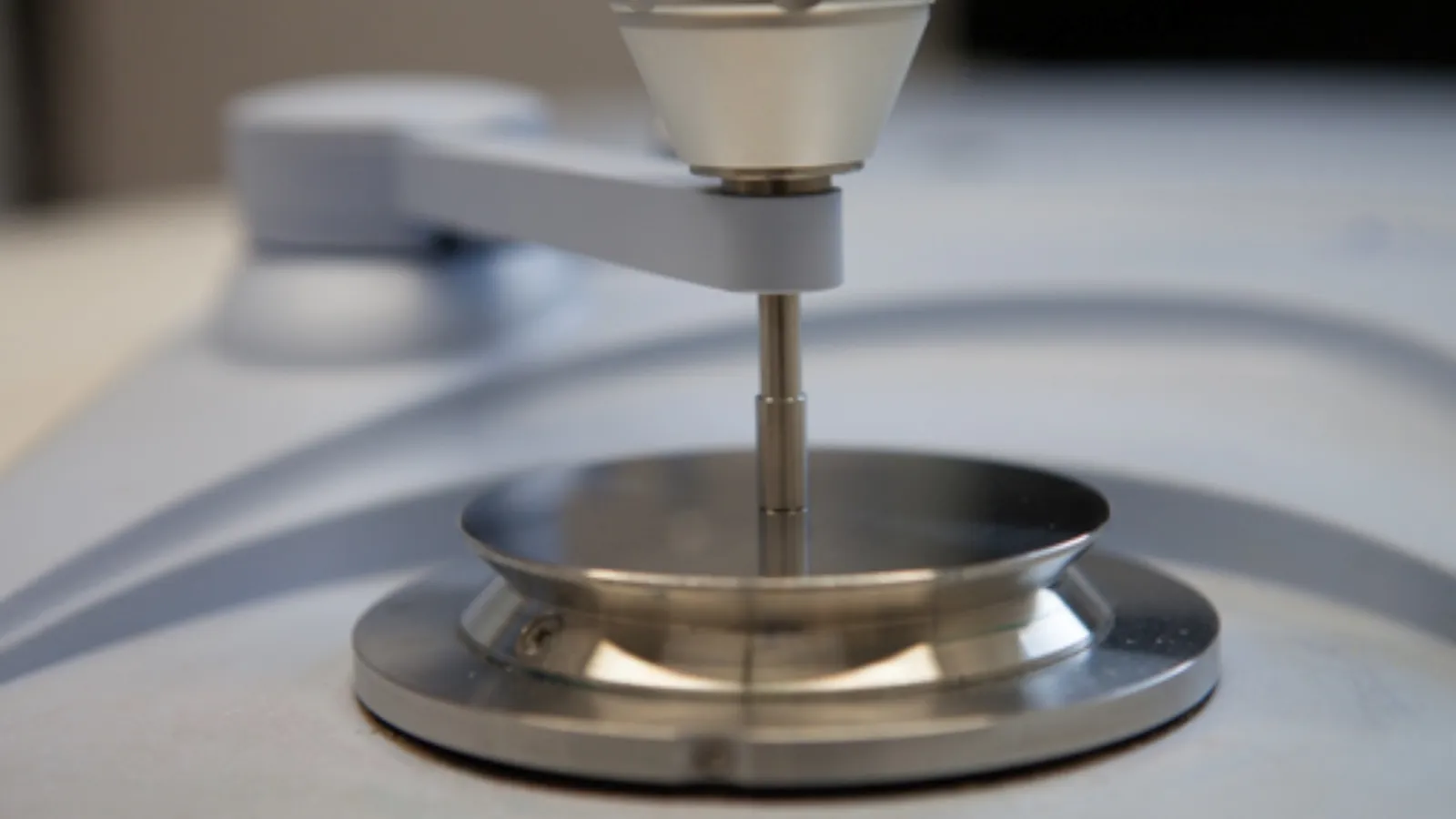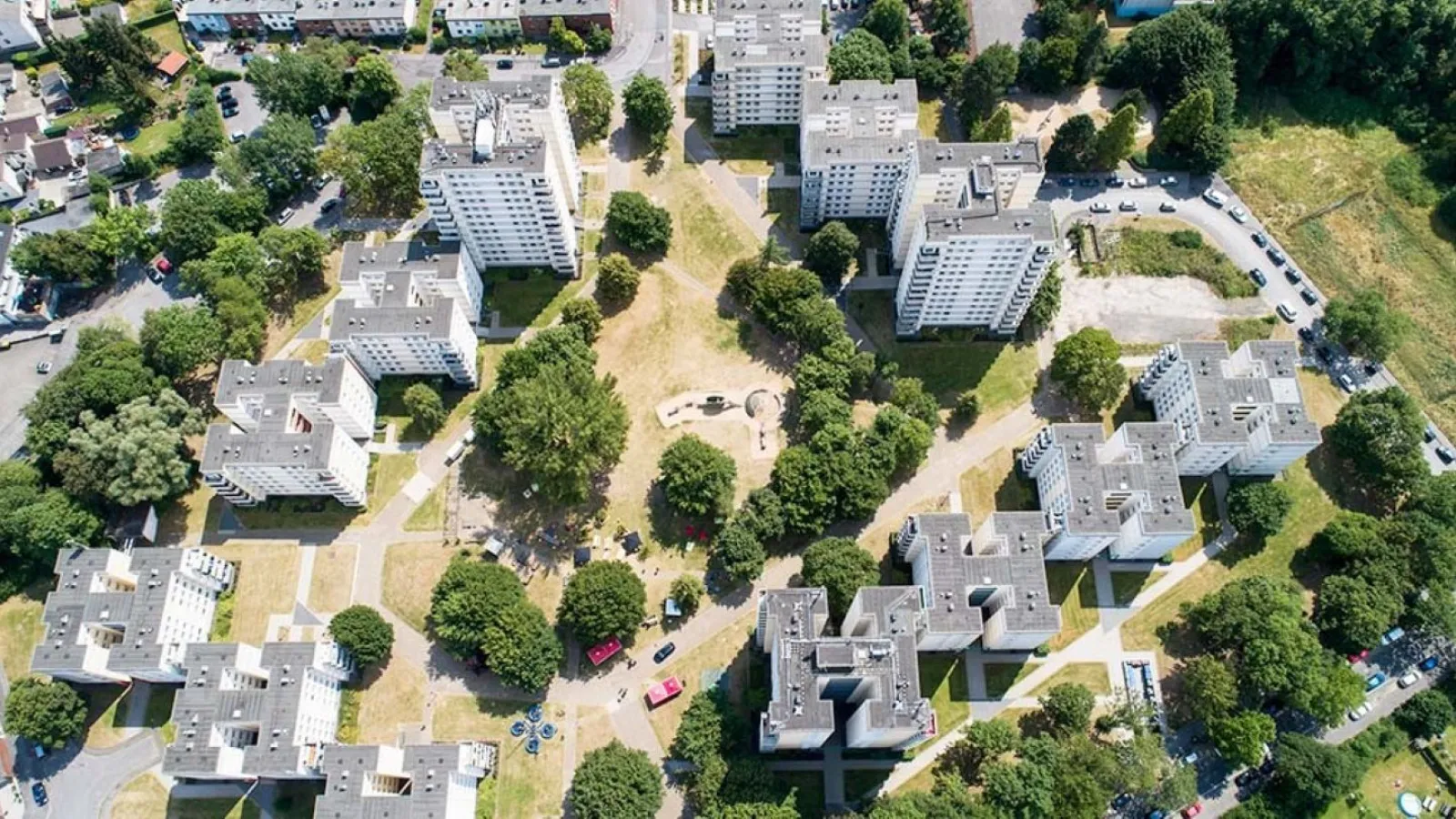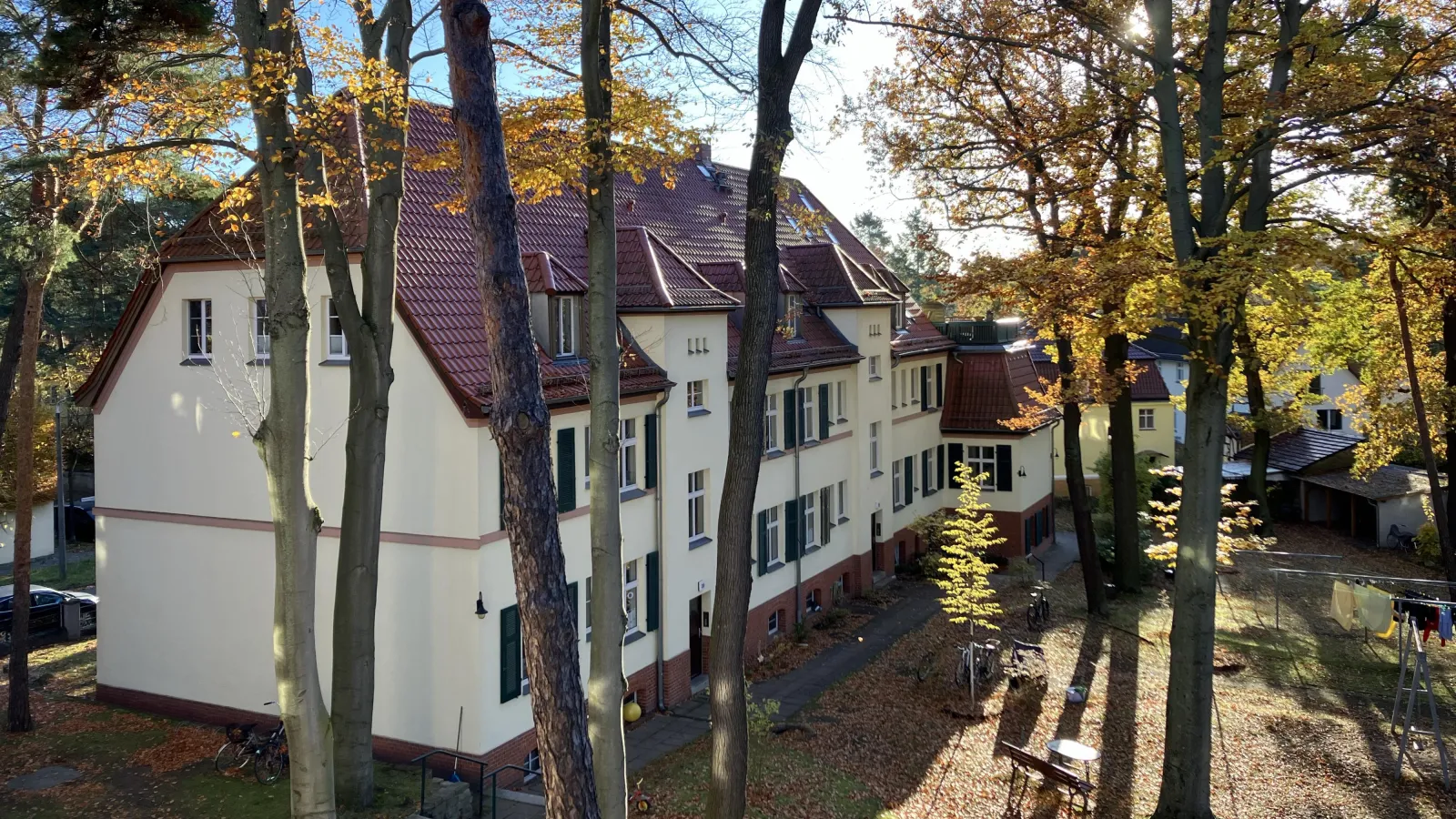Analytical Laboratory
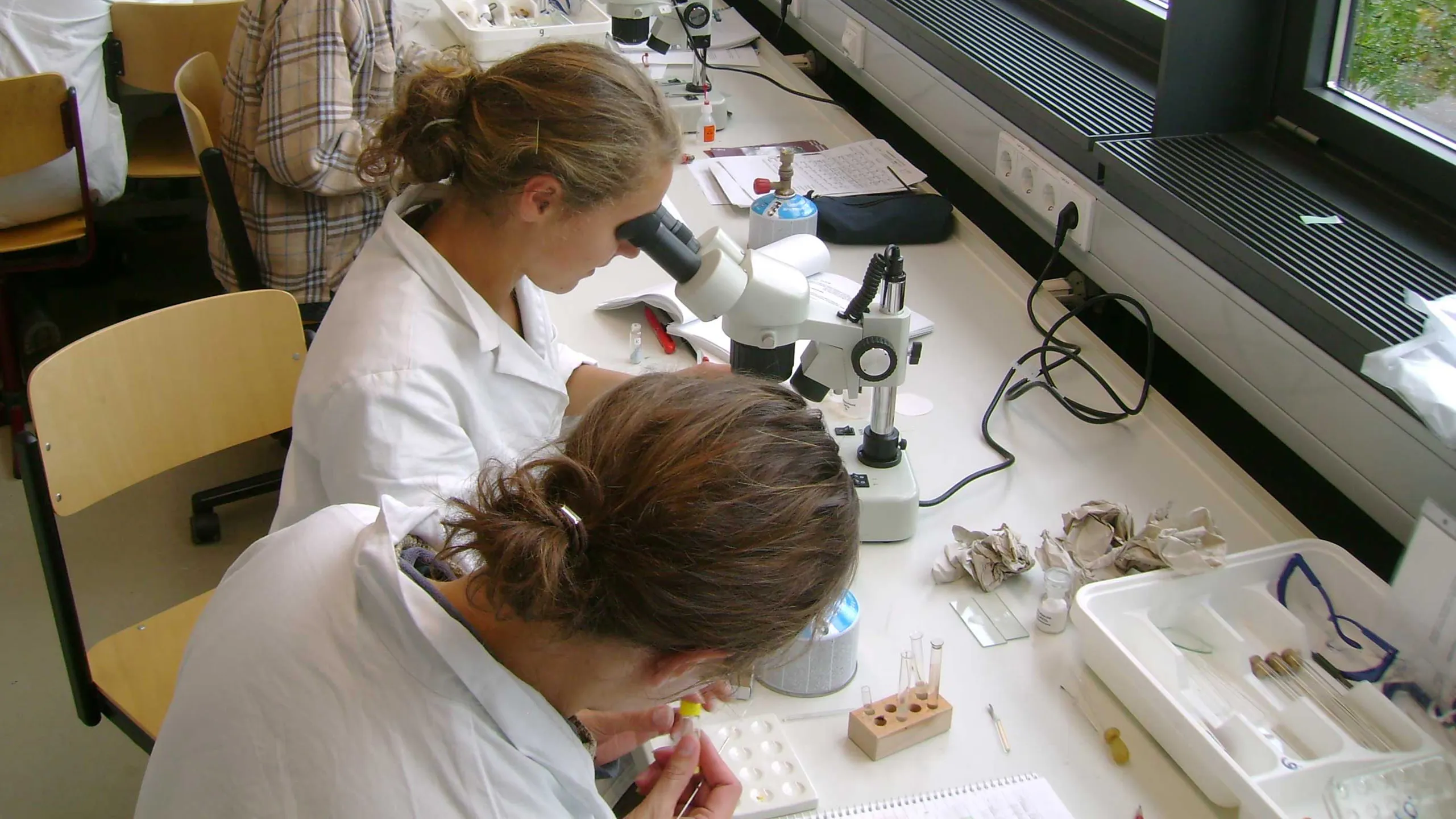
The analytical laboratory enables material and damage analyses using various methods. The focus is on the objects worked on in the Conservation and Restoration degree programme, including building materials. Interdisciplinary use and commissioned work are possible by arrangement.
Equipment & Use
The analytical laboratory is equipped with analytical devices for the examination of samples of art and cultural objects, building materials and for determining damage processes:
- Incident light microscopy (bright field, dark field, UV excitation)
- Polarisation microscopy (PolMik)
- Wet chemical and microchemical workstations
- Infrared spectroscopy (FTIR)
- Liquid chromatography (HPLC, IC, DC)
- Thermal analysis (TG, DTA, DSC)
- Portabe X-ray fluorescence analysis (pXRF)
- Portable VIS spectroscopy (colour measurement)
- Calcimeter and sieve analysis for building material analyses
In addition, the laboratory has an extensive collection of reference materials for historical and modern materials.
Cooperation with other specialised laboratories expands the analysis possibilities.
Rooms
- Laboratory and workshop building (LW)/rooms 109 - 112
Opening hours
- By appointment by e-mail to christine.fuchs@fh-potsdam.de or steffen-laue@fh-potsdam.de
Research Projects
More projectsStrengthening cultural activities in rural areas with the independent performing arts - models for the professionalisation of cultural infrastructures in rural regions of Brandenburg
In the FHP profile line 'Social Space – Education, Participation and Community', the project (2026–2028), funded by the Deutsche Forschungsgemeinschaft (DFG/German Research Foundation), is investigating the role of the independent performing arts in transformation and participation processes.
Berlin-Paris and the topography of the metropolises 1937 - 1945 (MetropoL40)
Franco-German research project on the history of urban planning in Berlin and Paris from 1937 to 1945
The Architect Emilie Winkelmann: Work, Influence and Impact
Emilie Winkelmann (1875 – 1951) was the first woman to open her own architectural practice in Germany in 1907. At a time when women could only enrol at German universities in exceptional cases and the professional field of architecture was still entirely in the hands of men, Winkelmann was able to establish herself as a sought-after architect in Berlin. The project focuses on her built work, her…
